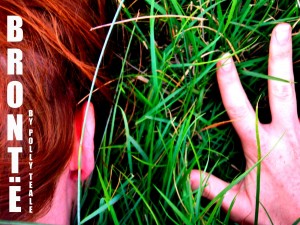Bronte | atyp Under the Wharf & Illyria Productions
- August 5th, 2010
- Posted in Uncategorized
- Write comment

Less than 200 years ago, the Bronte sisters were published under names that were not their own. Charlotte was known as Currer, Emily as Ellis and Ann was known as Acton. For women writers, to be published under a male pseudonym, was fairly common- in fact a letter sent to Charlotte from Robert Southey suggested that “… the daydreams in which you indulge are likely to produce a distempered state of mind … Literature cannot be the business of a woman’s life and ought not to be. The more she is engaged in her proper duties the less time she will have for it, even as a recreation.” In the face of this- the three sisters continued to write.
Last year, a discussion was sparked when Belvoir Street Theatre, in an epic gesture of introduction, lined up the key creatives for the mainstage at the season launch- exposing a raw nerve- the presence/absence of women in theatre. Since that time there have been many practical and philosophical reactions to women in theatre- forums, debates, discussions, recommendations, policy papers, groups formed. I mention this because Illyria Productions have partnered with the Sydney Women’s Fund pledging a $1 per ticket sold “as a part of our commitment to promoting positive female role models,” which is a noble pledge and partnership, which is beautifully reflected in the choice of story for their production.
The works of the Bronte sisters exist in contemporary life in film, theatre and song- and their story as women, ambitious talented women are laced with tragic romance… having lived a life of isolation, duty, limited exposure to the outside world… they were writers who wrote of love and passion and tenderness- but they wrote as spectators, writing from imagination, not life experience. Despite the obstacles, the social norms and expectations- a troublesome brother, an ill father- and having grown up without their mother, the sisters are nineteenth century poster girls for any woman who feels that they can offer more than what is expected of them… and the story reflects beautifully the actor’s ambitions within this piece- they have put their money where their hearts are- and have co-produced Bronte. These actors are not passive participants in this production, they clearly have a huge amount of themselves invested in the play- and that is very commendable.
Bronte is documentary theatre with an imaginative core- the lives of the three literary sisters are woven together through the characters in their novels- inspired by direct events, imagined events in their lives. At times the actors serve as context or commentary, and the male actors transform and transpose- allowing the sisters to be ever constant. Paige Rattray has done a superb job keeping what is a hugely literary play, in the realm of theatre- creating play spaces, formal settings and a multitude of worlds through a collection of stacked hardcover books. Rattray has left no opportunity to maximize the space and the set, unturned- and has kept the production aspects simple and elegant. Though no designer is credited- the overall look of the show is created by a talented team including Michael Hankin (Costume design), Mikkel Mynster (Lighting designer), Fraser Harvey (Sound Design).
Actor/Co-producers Jennifer Williams, Ashley Richardson and Laura Francis work beautifully together to tell the story- flipping in and out of contemporary setting. There are some bold choices balancing the refined elegance and bright, burning ambition of Charlotte Bronte (Jennifer Williams), an austere yet tender practicality in Ann Bronte (Ashley Richardson) and a private, dark, dreaminess of Emily Bronte (Laura Francis) which is wonderful to watch. This is a play about these women- all of whom are interesting and compelling to watch- all of whom we have something to learn from. It is the women who are the stars of this show- the male characters necessary satellites… and I found myself drawn into their story – and their struggle- and I thought, how much things have changed- and yet how much they stay the same.
I must confess that I have never much been a fan of the Bronte’s novels (but I do dip into the collected poems of the sisters from time to time)- that’s a taste thing… and I walked out of After Mrs Rochester due to a terrible headache and a severe attack of “why am I watching this? And why has this show travelled here?” back in 2004 at the Sydney Theatre… so I must admit, the fact that I found this production, on the whole, to be well produced, well conceived and well delivered, demonstrates that my taste is still largely unpredictable when it comes to shows. Bronte enthusiasts will be delighted- directing students will admire Rattray’s craft. Acting Students will be inspired… because of these artists- the Bronte Sisters (and the actors and production team) were determind to “be whatever she might imagine.”